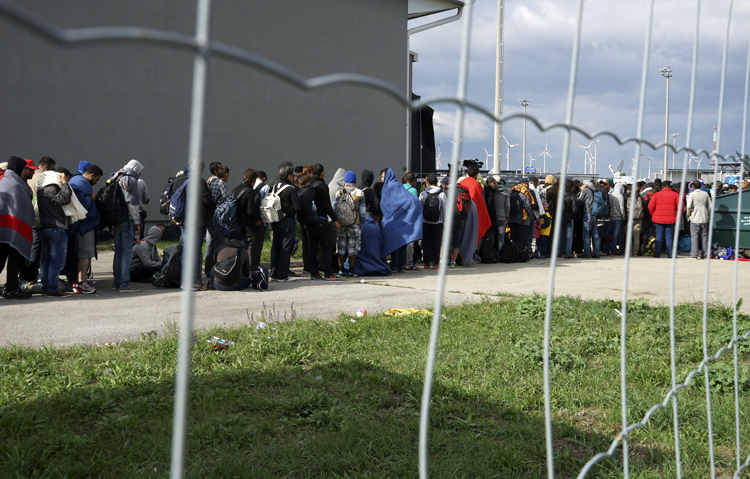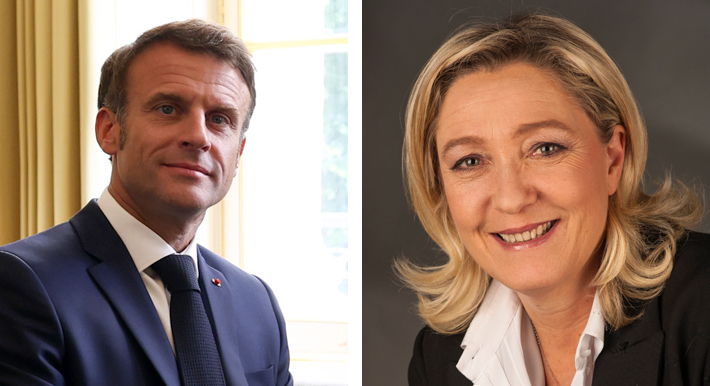INDIAN ARMED FORCES CHIEFS ON OUR RELENTLESS AND FOCUSED PUBLISHING EFFORTS

The insightful articles, inspiring narrations and analytical perspectives presented by the Editorial Team, establish an alluring connect with the reader. My compliments and best wishes to SP Guide Publications.

"Over the past 60 years, the growth of SP Guide Publications has mirrored the rising stature of Indian Navy. Its well-researched and informative magazines on Defence and Aerospace sector have served to shape an educated opinion of our military personnel, policy makers and the public alike. I wish SP's Publication team continued success, fair winds and following seas in all future endeavour!"

Since, its inception in 1964, SP Guide Publications has consistently demonstrated commitment to high-quality journalism in the aerospace and defence sectors, earning a well-deserved reputation as Asia's largest media house in this domain. I wish SP Guide Publications continued success in its pursuit of excellence.
- A leap in Indian aviation: Prime Minister Modi inaugurates Safran's Global MRO Hub in Hyderabad, Calls It a Milestone
- All about HAMMER Smart Precision Guided Weapon in India — “BEL-Safran Collaboration”
- India, Germany deepen defence ties as High Defence Committee charts ambitious plan
- True strategic autonomy will come only when our code is as indigenous as our hardware: Rajnath Singh
- EXCLUSIVE: Manish Kumar Jha speaks with Air Marshal Ashutosh Dixit, Chief of Integrated Defence Staff (CISC) at Headquarters, Integrated Defence Staff (IDS)
- Experts Speak: G20 Summit: A Sign of Global Fracture
A September Revolution
The German provincial elections could be remembered as the beginning of a broader political shift, influencing electoral agendas in other countries
 |
The Author is former Chief of Staff of a frontline Corps in the North East and a former helicopter pilot. He earlier headed the China & neighbourhood desk at the Defence Intelligence Agency. He retired in July 2020 and held the appointment of Addl DG Information Systems at Army HQ. |


In the elections held on September 1, 2024 in two of the provinces in eastern parts of Germany (former East Germany as an entity evokes a different set of emotions and relate to the by-gone era of the cold-war), the anti-migrant right wing party, Alternative for Deutschland (AfD) has captured nearly a third of the seats. It has come out on tops in Thüringen, with nearly a third of parliament (32.8 per cent), and it nearly won the most seats in Saxony, with more than 30 per cent of the vote. The ruling coalition of the Federal government in Berlin led by Chancellor Olaf Scholz fared pretty badly, almost on the brink of a wipe-out.
By themselves, these outcomes should not have drawn much attention considering that these were provincial elections and polls for the Bundestag, the German national parliament are still a year ahead. But there is significant messaging from the common voters that cannot and should not be ignored, not only in Europe but even in faraway India.
Rise of the Far Right-wing Nationalists in Europe
The outcomes should not come as a surprise though. The elections to the EU Parliament held in June this year had given almost similar verdicts. In that election, the AfD, captured 16 per cent of the vote, nearly five percentage points better than it did in the 2019 elections. Germans were not alone in expressing their anger and frustration with ruling dispensations. Pro-EU centrist, liberal, and environmentalist parties suffered losses, while anti-EU right-wing populist parties made gains.
In the September 2024 elections in two eastern German provinces, the right-wing Alternative for Deutschland (AfD) captured nearly a third of the seats.
In France, President Macron called for snap elections after his Renaissance party and its allies won less than half the 31-per cent result of the Marine Le Pen's far-right National Rally (RN) party in the EU vote. Only a two-rounds electoral process prevented the RN from capturing a majority, as the rest united before the run-off to avoid splitting the anti-RN votes. France is still in a political gridlock. Chancellor Scholz is making similar calls for unity to keep the far-right AfD from forming government in these two provinces, voters' choice be damned. Popular sentiments may be thwarted for a while but the trends are clear.

Governing dispensations in Europe have been found to be spectacularly out of sync with the problems, aspirations and expectations of the common man. Nothing else explains the fact that since the outbreak of the war in Ukraine where the EU and NATO have coalesced to provide moral, political and material backing to Ukraine's war efforts and wholeheartedly implemented the US imposed sweeping and unprecedented sanctions regime against Russia, elections have consistently thrown out the governing dispensations. Anti-EU, anti-war and most virulently anti-migrant right-wing populist parties now hold or share political power in Hungary (Fidesz), Italy (Brothers of Italy), Sweden (Sweden Democrats), Finland (Finns Party), Slovakia (Slovak National Party) and Croatia (Homeland Movement).
Focus on Immigration and Migrants
Migrants are in focus, whether it's the knife attacks in Germany, Sweden or Australia or bouts of riots and arson at an unprecedented scale that has followed the fatal knife attack killing three young girls at a Taylor Swift-themed dance and yoga event in Southport, UK. France has witnessed widespread arson attacks in the past mainly attributed to non-assimilated Muslims migrants from North African region. It is also the underlying theme in the upcoming November elections in the US where Presidential Candidate Trump accuses the Biden administration of facilitating millions of migrants to cross its Southern borders.
Governing parties across Europe, including Germany, have been increasingly out of touch with the problems, aspirations, and expectations of the common people.
Migrant fuelled violence, a cost of living crisis, increasing unemployment and rising housing costs in Europe are all variously attributed to the unchecked migration in the past decade or so. But equally stark is the fact that non-assimilation and a gradually more intimidating assertion of their differentness by the mainly Muslim migrants has riled the mainly white Christian native populace in Europe. Radical Islamist are leveraging the war in Gaza by staging chocking pro-Palestine demonstrations.

The reactions of governments of these countries to the situation is intriguing. The UK Conservative Party's 14-years rein came to an end precisely because they failed to check unbridled migration across the English Channel apart from cost of living crisis. Yet the new Labour government of Keir Starmer nullified the Rwanda deportation plans immediately on assuming power. Over 7,000 migrants have crossed the channel since June and the UK migration minister talks about making more hotel rooms being solicited to house the illegal migrants who are being labelled 'irregular migrants' for curious political reasons. Vote bank politics propels the Labour to go soft on pro-Palestine demonstrators while coming down really hard on the anti-migrant marches labelling them as 'right wing thugs'.
Right-wing populist parties now hold or share power in several European countries, including Hungary, Italy, and Sweden, driven by anti-migrant and anti-EU sentiments.
The Anglo-Saxon clique consisting of the UK, Canada, Australia and the US are instead curtailing student visas and tightening work permits which are mainly availed by students and well-skilled manpower from India. Canada capped 2024 international student permits by 35 per cent and imposed limits on post-graduation work permits. Roughly 70,000 Indian students face immediate deportation from Canada. Australia has set a 2,70,000 cap on new international student commencements for 2025. These measures should force the Indian parents to re-think. The flight of high-skilled workers to the lucrative west as well as the acute shortages of skilled workers in key sectors in India is well documented. The bright Indian skilled workforce that has used the highly subsidised public education system but migrate to the west for lucrative pay packages must think India.
Political Expediency Checkmates National Interests
A pervasive woke culture and institutional capture by the corporate lobbies eyeing cheap labour has blind-sided policy makers. There is great hesitation in calling a spade a spade. Illegal Muslim migrants infiltrated by radical jihadists is a demon by now well entrenched in most European countries including France, Germany, the UK, Scandinavia and the Netherlands. Yet only the so-called far-right parties who may be viewed variedly as nationalists that have come to power in some of these countries and inching steadily close to power in others are calling out the Islamists, jihadist and the rabid radicals to conform and assimilate or exit.
The rise of far-right nationalism in Europe is driven by factors like unchecked migration, non-assimilation of migrants, and increasing socio-economic strain.
These German provincial elections could be benchmarked in posterity as the onset of a September Revolution, not comparable to the October Revolutions of 1917 in terms of its tumultuous events and impact but unmistakably, it is going to light up the electoral agendas in countries far and wide.
The Indian Context
Is there a lesson for India and the Indian electorate from the events and travails of Europe in the past decade or so? For one, dangers are more likely to emanate from within than without. A tighter vigil at the border is inviolable but a more stringent monitoring of the destabilising forces trying to divide the society and derail development, action against externally funded NGOs, separatists and influencers instigating the youth and stringent steps to check infiltration by agenda driven radicals is urgent. The Indian state and the Indian citizen must be intolerant of intolerance.





